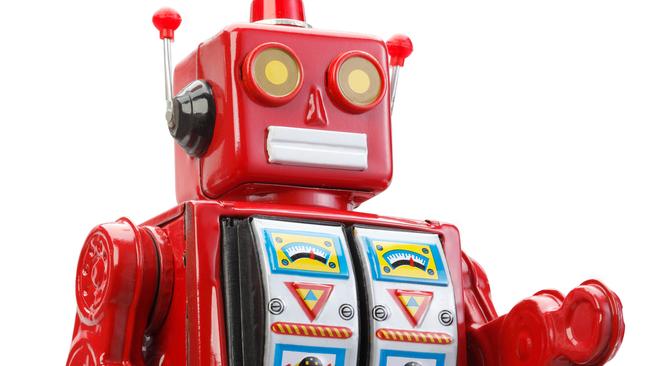Santa’s toy deliveries could be delayed as Covid becomes the gift that keeps giving
It’s enough to make the toy industry take its bat and ball and go home.

It’s enough to make the toy industry take its bat and ball and go home. A recession combined with rising unemployment and the uncertainties around COVID-19 are testing the stress levels of the $750m Australian toy sector just at a time when it should be celebrating the arrival of Christmas and marketing the latest must-have toy to frazzled parents.
But as with most industries, the pandemic has changed everything. On the demand side, the first recession in 30 years as well as a lack of blockbuster movies in the cinemas as Hollywood puts its new releases on ice is shaking the confidence of the toy sector and potentially sapping the interest in toy purchases.
To be sure, the home lockdowns since March have inspired purchases of toys, jigsaw puzzles and other games but there is the fear this has pulled forward Christmas purchases with cupboards and kids’ rooms full up. The Christmas period usually accounts for 50 per cent of total annual toy sales, but Australia’s industry experts have reported “lockdown related” sales figures in line with peak Christmas levels, experiencing increases of 20 per cent to 80 per cent against the same time last year. It is difficult to predict whether these levels will continue into the Christmas season.
“It will be hard to predict demand this year, during lockdown we have seen toy sales go up, but we have seen unemployment go up, recessionary pressures happen, not seeing any movies which often drives forecasting for what toys are going to be hot,’’ Ernst & Young supply chain executive Nathan Roost told The Weekend Australian.
Then there is the supply-side constraints, which could actually leave empty spaces under Christmas trees and twisted, upset and angry pouts on the faces of disappointed kids whose toys are somewhere on the ocean or stuck in limbo at a Chinese port.
Mr Roost said if the top toys from 2019 are anything to go by, the likelihood is many Christmas wish-list items will be coming from overseas. As much as 80 per cent of Australia’s toy supply is imported, with most coming from China such as the top three toy brands: Lego, Hasbro and Mattel. Throw into the mix the massive reduction in air travel and competition for available ocean freight capacity and getting toys into the country at sufficient volumes could prove a tough ask.
“Over the last nine months manufacturing capacity has been reduced, I think you are also seeing inbound logistics especially into Australia had to adjust, and that has been both ocean freight and also airfreight which has taken a big hit because there is no passenger flights really coming in.”
On Thursday Wesfarmers chief executive Rob Scott alluded to this supply issue when he revealed that sales at general merchandise chain Kmart had been dented by problems with obtaining enough stock levels and long lead times for orders.
Mr Roost believes there is a danger of some empty shelves as we get closer to Christmas.
“Supply chains have caught up a little bit over the last few months,’’ said Mr Roost. “I think if it is not here (already) then it might get delayed. I think this year compared to last year there will be more delays, and if retailers haven’t ordered by now it is not going to make it to an e-commerce warehouse or a retail store.”
He says the good news is China has seen a rapid manufacturing productivity recovery since March, following disruptions in January and February due to COVID-19.
“China has rebounded quite quickly, so they are probably in a better position than Europe, and obviously there is a fair bit of toys that come out of Europe, I think there is a reliance on North Asia as a market.
“But the inbound supply chain delays are still real and that is probably a concern as well.’’
Australian Toy Association president Jonathan Zimbler, who also runs his own fourth generation family-owned toy importing company Zimbler, said his business had some supply issues coming out of Europe.
However, he had booked orders earlier than usual to get product from China, ordering supplies in March for this Christmas.
“China has been difficult. Even after the shutdowns when they came back a lot of these what I would call middle-tier and lower-tier factories, in lower-tier factories people (workers) just didn’t come back.
“Middle-tier factories were missing people. We are lucky we have got quite a few reputable brands coming from very reputable manufacturers in China and even they had problems getting staff back into the factory.”
Mr Zimbler said he didn’t think consumers would face empty shelves, rather stock arriving late.
“I have been talking to Toyworlds around Australia and all during COVID and lockdowns, and they seem to be doing very well, and even coming out of lockdowns people have been buying and putting products away for Christmas. People walk in (to a store) and say we know that we want something, we are buying it now because we are worried we won’t get it — it is a bit like the toilet paper issue, buying it now because you might not get it in a month’s time.”
Added Mr Roost: “To make sure Santa delivers it’s a good idea to buy local, Australian-made products, or to buy now if it’s coming from overseas”.




To join the conversation, please log in. Don't have an account? Register
Join the conversation, you are commenting as Logout